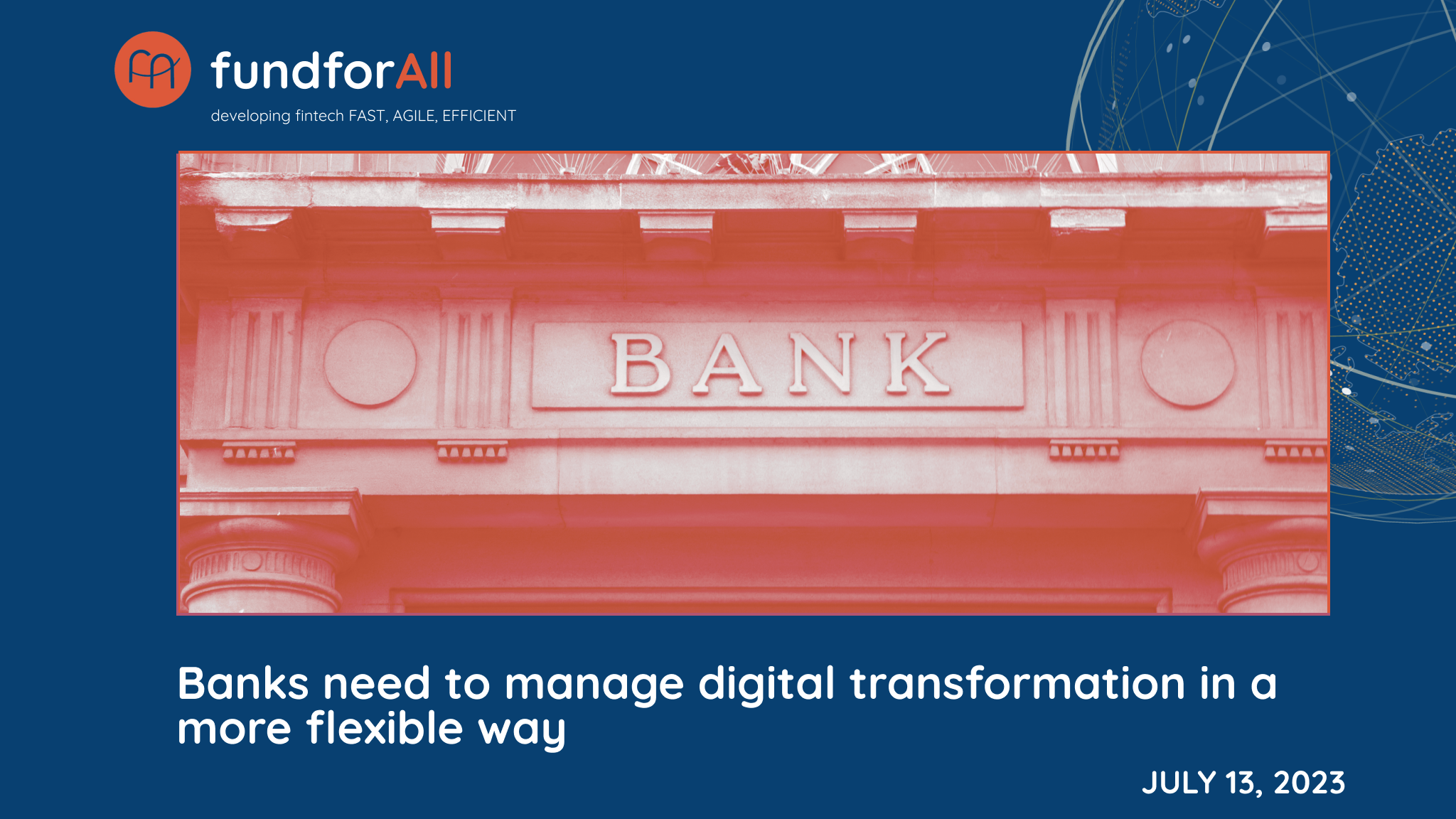
Banks need to manage digital transformation in a more flexible way
The digital transformation of banks has been a demand for several years. The European Central Bank, through ECB Banking Supervision, carried out an extensive survey of 105 institutions and spoke with their managements and advisors and concluded that while steps have been taken mainly towards a customer-centric approach (1/3 of customers basically use a mobile phone, while half of loans completed digitally), we are still a long way off and the rate of adoption of new digital models is extremely slow (https://www.bankingsupervision.europa.eu/press/publications/newsletter/2023/html/ssm.nl230215_2.en. html).
The delays clearly have to do with the need to “open” the particularly old core systems to third-party suppliers, which can be a source of threat to the stability of the banks (fraud, dependency, security, etc.). Still, the most important causes are both the absence of a corresponding administrative support with the placement of specialized executives at all levels, as well as the distinct existence of a competent budget – today it is only 1/5 of the IT Budget – for the long-term transformation.
An old friend explains it better than I could imagine in her book: “An organization that is 100 years old goes on this journey with all the wrong things in the kit: hierarchies, attitudes, habits, ways of rewarding people, systems, you don’t have the right kit for the trip. So you try to go on a journey that is personally embarrassing, stressful and unclear how far it goes, with all the wrong equipment.” (Dr. Leda Glyptis – “Bankers Like US – Dispatches from an Industry in Transition.”)
At the same time that all over Europe banks are fighting to change, fintech startups are popping up everywhere, ranging from payments, to lending, to investments, to mortgages all at the same time with great tools that provide very easy-to-use solutions in the regulatory field, making consumer “journeys” easy and intimate. Digital banks are not yet triumphant as many have rushed to predict, but they are certainly starting to gain ground in an environment where user experience, expense management and productivity will define the next winner.
If banks want to remain competitive, they will have to discover flexibility. Given that they cannot change their structures immediately, they should bypass them, “run” parallel projects through a strategic planning, which will help them remain competitive with new products and models – at least the ones they launch their digital competitors – while simultaneously transforming their core systems.
The teams that will take on this complementary role should be fresh, specialized in financial services and with a deep knowledge of the technologies that are emerging, in order to provide exactly the tool kit they need to move quickly but above all flexibly and efficiently, with low risk both structural (system security, connectivity etc) and commercial (need for quick improvements or changes etc).
FUND4ALL – www.fund4all.gr – was created a few months ago to offer exactly this flexibility to large organizations. Working exclusively in fintech, we have the knowledge of the business models and technologies, but also the people to support them in order to play this role. Together with the bank’s team and their consultants, we can develop fast, flexible and efficient products, which will keep the bank competitive or why not, a pioneer, without major internal changes that “disrupt” everyday life and add meaningless and unnecessary costs.
Find more in https://fund4all.gr/ or contact us at info@fund4all.gr




